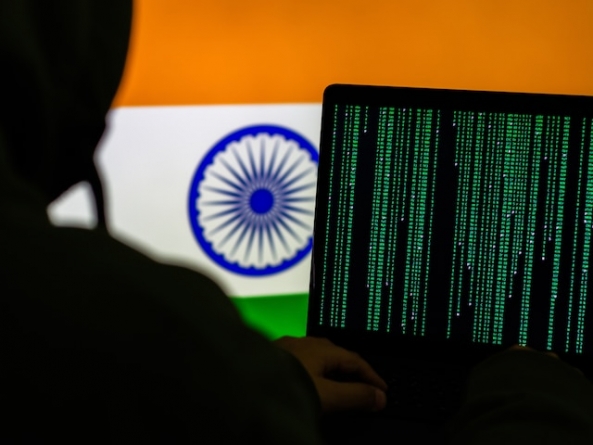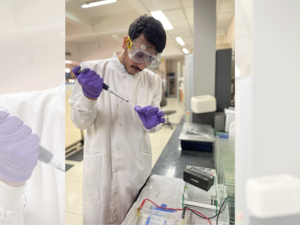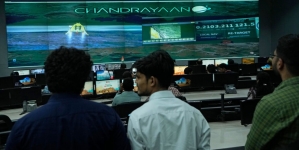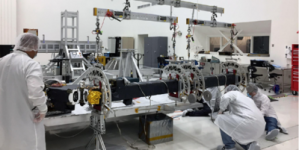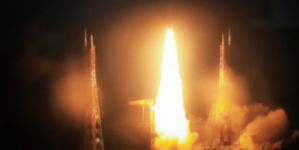-
LONDON: Run For Modi” Event In London To Drum Up Support For PM Modi - 15 hours ago
-
LONDON: Indian-Origin Candidate On How He Plans To Win London Mayoral Polls - 2 days ago
-
HARVARD: No Country Is Perfect”: Physics Wallah Urges Indian Students At Harvard, Stanford To Return - April 27, 2024
-
CALIFORNIA: PM Modi Put India On World Map As Credible Innovator- IT Industry Leaders - April 26, 2024
-
WASHINGTON: Indian Students Bag NASA Awards For Human Exploration Rover Challenge - April 25, 2024
-
LONDON: Indian-Origin Teen In UK Gets “Life-Changing” Cancer Treatment - April 25, 2024
-
SILICON VALLEY: All About Pavan Davuluri, New Head Of Microsoft Windows - April 25, 2024
-
LONDON: UK’s India Gate To Commemorate Role Of Indian Soldiers From World Wars - April 24, 2024
-
HARARE: Shri Bramha Kumar appointed as the next Ambassador of India to the Republic of Zimbabwe - April 23, 2024
-
LONDON: Indian-Origin Principal Wins UK Legal Challenge Over School Prayer Ban - April 23, 2024
NEW DELHI: Brain Gain- 75 Indian Diaspora Scientists to Return to India Under New Fellowship Scheme; Most from US, Canada
NEW DELHI: Nearly 75 Indian diaspora scientists may return to India over the next three years to work on multiple science and technology projects under the government’s new fellowship scheme with an outlay of about Rs 80 crore. The first batch of 22 fellows have already been selected and are expected to join the institutes in April this year.
The scheme – Vaibhav – launched by the Department of Science and Technology (DST) has already completed its first call for proposals, and initiated the second call. The call is being made to all scientists of Indian-origin engaged in active research in a recognised institutes abroad for at least five years to collaborate with a reputed institute/university, including the IITs back in India.
They will be required to spend 1-2 months annually for a maximum of three years and will be provided with a grant of Rs 4 lakh per year ($4,800). While they may take leave to come and work in India briefly, they will have to submit a consent letter from their parent institute. The fellowship also covers their international travel from the parent institute to India once a year, and fully-furnished local accommodation for two months, along with Rs 1 lakh per year for research expenditure in India, and domestic travel to institutes within India.
“We have received about 302 proposals when we made the first call last year, out of which 22 proposals have been shortlisted, and would be given the award letters soon. Hopefully, we can expect them to join their respective institutes after April,” says Dr Charu Agarwal from the Department of Science & Technology (DST).
The ministry will also provide financial support up to Rs 5 lakh per year for three years to the institute facilitating the fellow for research work. While they can spend just two months in a year, the institute will have to complete the project within three years and connect with the fellow through online meetings for rest for the year.
AI & MACHINE LEARNING AMONG TOP AREAS OF INTEREST
The scientists are selected on the basis of a research proposal to be submitted by the host institute they intend to collaborate with. All the funds would also be released to the institute which will disburse it to the fellow. While the fellowship is open for all areas under Science, Technology, Engineering, Mathematics as well as Medicine (STEMM), Artificial Intelligence (AI), Machine Learning (ML) and Data Science have garnered the maximum interest.
“It is a good opportunity for our scientists working abroad to collaborate with their local counterparts on projects which can be of tremendous value to both. The Indian diaspora has access to new innovations and futuristic technology that they can share with the students here, and at the same time, get an opportunity to build their network and collaborate on research publications. It’s like giving back to the country in a way. A win-win situation for all,” says Dr Agarwal from the International Co-operation Division at DST.
Some areas are also being prioritised in line with the government’s scientific missions. The government has recently launched several scientific missions, including the National Quantum Mission, National Supercomputing Mission, Deep Ocean Mission, and the plan is to get the Indian diaspora to engage in related projects which can eventually strengthen these missions, and build the necessary human resources in the long run.
MAX APPLICATIONS FROM THE US, CANADA
The ministry plans to shortlist as many as 75 scientists from countries across the globe based on their research proposals, which can also benefit the Indian researchers. The first call issued last year yielded about 302 proposals, out of which 22 have been selected across 18 different verticals. The second call made this January will end with scrutiny of the applications after March 15.
Scientists from several countries, including the US, Sweden, Norway, Australia, Singapore, Japan and the UK, have applied during the first call, according to the officials. However, the maximum applications are from scientists in the US and Canada who are keen to engage with local institutes.
The proposals are examined by an Expert Review Committee with members from different ministries, including earth sciences, new and renewable energy, health as well as electronics and IT, and later shortlisted by an apex committee. The fellowship is open to all the Non-resident Indians (NRIs), persons of Indian Origin (POIs) as well as Overseas Citizens of India (OCIs) currently employed abroad.



















